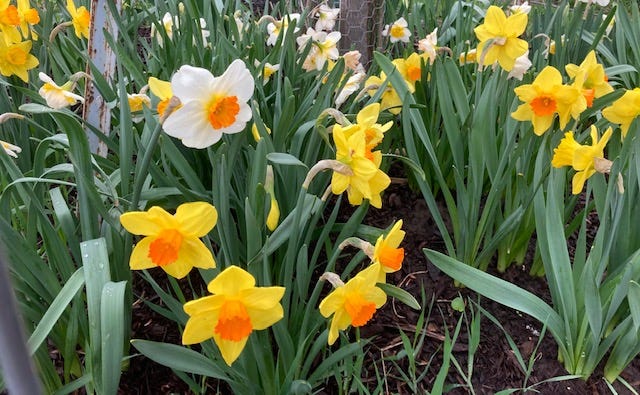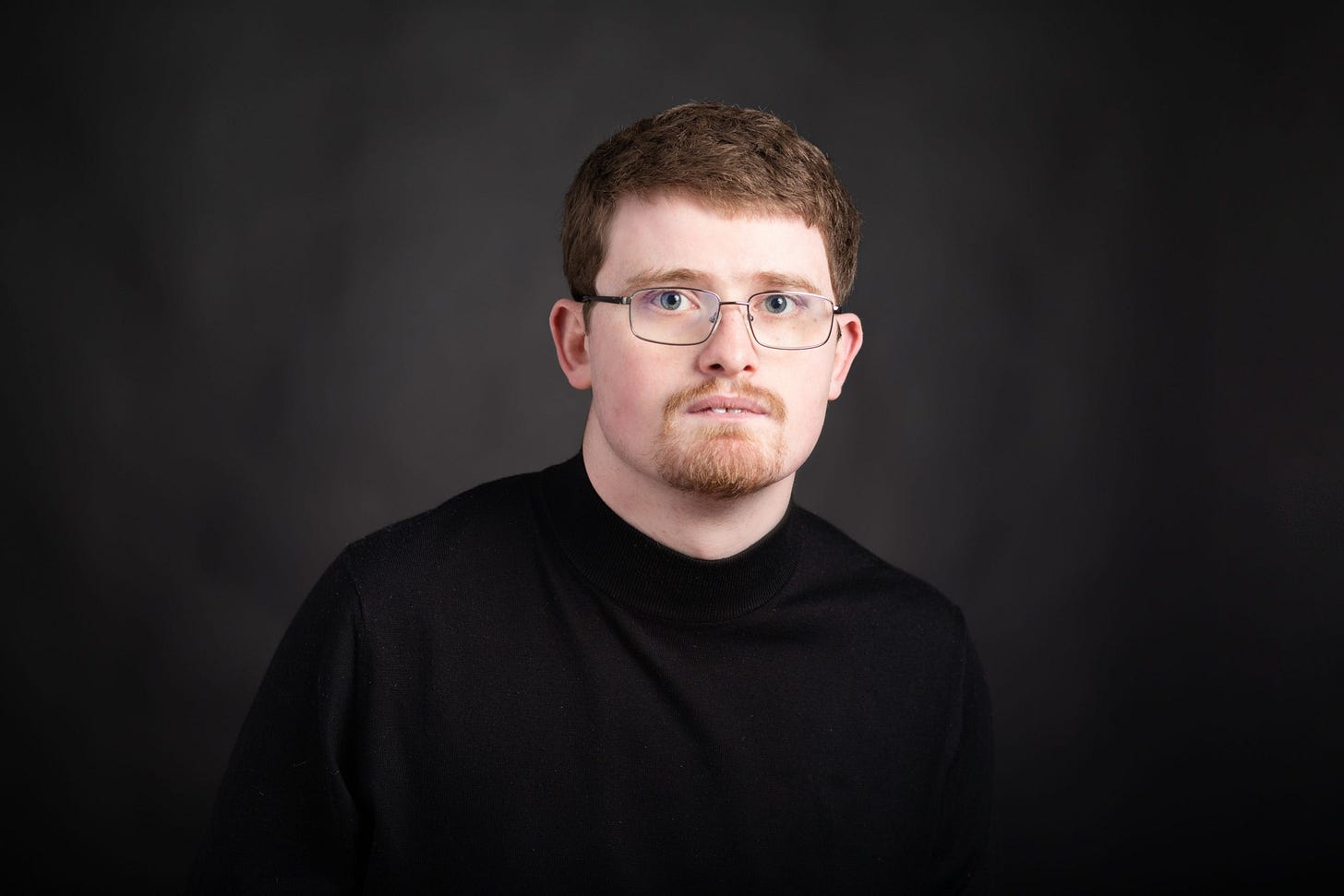The Only Neuro I Know
An Invitation to "Mary Swander's Emerging Voices" Column
Today’s post launches a new column for the Iowa Writers Collaborative called “Mary Swander’s Emerging Voices.” I will be publishing a group of diverse writers voicing their opinions on current topics. You will meet astonishing people engaged in issues of identity, disability, religion, the environment, politics and the economy, and agriculture and the arts.
Our first writer is D.J. Savarese, an artful activist, poet, teacher, and optimist. He advocates for alternatively communicating people, creating connections where others see only divides.
THE ONLY NEURO I KNOW
“I envy you, Deej,” the director of the University of Indiana’s medical school once confessed to me and about 300 of his first-year students. “The fresh air never sings to my lungs. I came here to your film screening prepared to pity you, but I leave here pitying myself.”
Rarely am I the object of a stranger’s envy, particularly a doctor’s. But this doctor’s unexpected remarks cast me in a different light, as someone whose relationship or contact with my environment is more intimate, more direct than his own.
I’m often asked to explain my neurodiversity. It can be hard to know how your neuro is diverse when it’s the only neuro you know. To begin with, I sense my way into the world. I lead with my senses, not with language.
And I’m not alone in this. Autistic artist Donna Williams wrote: “Autistics live in the sensory.” By that she meant the senses have more autonomy, which affects our relationship with the natural world and our place in it. We feel ourselves, less as citizens of a domain, and more as interdependent beings within a vast ecosystem. Autistic anthropologist Dawn Prince recounts:
“When I was young, I talked to animals in a language of silence. . .I grew together with them because of the words of living together in a world where everything needed everything else.
Sometimes my grandfather would ask me in the garden, “What are the worms saying today?”
“Fine fine slither dirt push good rotting green,” I would answer, smiling.
My grandfather, in his love and understanding, never told me how important it was to talk like everyone you were supposed to be like.
There was no place for saying that tomato plants said, “Sun warm summer, pushing pushing, green, greenred, red.”
Or that fish said,” Cold float shade shade shade.”
But it’s not just my neuro that’s diverse. The speech and motor differences of my form of autism also influence my relationships. My sense of agency is much less individualistic, much less human-centered. I need help to do things neurotypicals take for granted—like tying my shoes and wiping my mouth.
In a wide-open space, I move constantly, conversing with the agitated air around me. I can spend hours with my environment, not in it– the categories “human” and “non-human” crumbling like a sandcastle at the beach, the white, frothy wave of my attention spreading generously over everything.
But most people apparently relate to the environment quite differently. My father, who writes about neurodiversity, has pointed out that neurotypicals begin in utero to privilege human speech sounds over all other sounds in the environment. Research has shown that even before they are born, neurotypicals zero in on the human voice and filter out what is dismissively called “noise,” learning to essentially ignore or neglect the non-human.
In other words, neurotypicals filter out most of what’s available for them to see, hear, feel, taste, or sense. Just picture the average person walking down the street, narrowly focused in on a small screen of printed words in black and white or talking loudly on the phone, completely disengaged from their surroundings. Language guides their way through the world, and in so doing, divorces them from their nonhuman co-habitants.
The best way I’ve found to describe my lived experience is through “Swoon,” a poem I wrote and set to oil paint animation by British artist Em Cooper. The poem tries to capture the two-sidedness of the sensory in autism: the way it both enlivens and sometimes exhausts me. Disability doesn’t so much become ability as refuse the terms and binary altogether.
In my poem, viewers find themselves immersed in the unfamiliar swirling, swooning world of the sensory, and I remind typical people, as the doctor did, that their prized sense of normalcy comes at a cost. A cost exacted not just from them, but from every other being within our ecosystem. Such a rational distant-I cannot grasp that we are all made up of matter and so must care for each other.
We can’t change who we are, but we can change the hopeful ways we relate to each other. Any way forward needs to encourage all of us to commingle interdependently with one another, and with the other beings within our ecosystem. The Earth’s well-being depends on it.
In a chapter called “The Speech of Things,” in his book Becoming Animal, anthropologist David Abram reminds us that language is “less a human possession than it is a property of the animate earth itself, …a telluric power in which we, along with the coyotes and the crickets, all participate.”
That language is our native tongue. And poetry, with its foregrounding of the sensory and the metaphoric, is its closest alphabetic translation. Poetry quite literally re-awakens the senses, lowers people’s defenses and opens their eyes to new ways of becoming-with, allowing our perceived adversaries to become our fresh-thinking allies.
David James “D.J.” Savarese is a 2022/23 Iowa Arts Fellow, who teaches poetry writing for the LYNX Project/Chicago and directs The Lives-in-Progress Collective. His creative publications include Swoon (Nine Mile Books, 2022); the Pushcart Prize-nominated “Passive Plants” and the Peabody award-winning, Emmy-nominated documentary Deej: Inclusion Shouldn’t Be a Lottery (2017).
Please contemplate a paid subscription. These funds from will pay the authors of these columns.
“Mary Swander’s Emerging Voices” is honored to be part of the Iowa Writers Collaborative. Please read and support our other authors:




I so enjoyed every word of your writing. I was moved and noticed I was calmed my your words and the rhythm of your writing. Thank you
This is an incredible piece. Thank you for sharing!